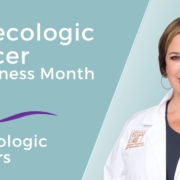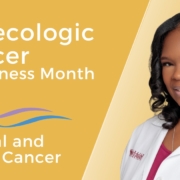Understanding Gynecologic Cancers
One of the biggest threats towards a woman’s health is gynecologic cancers. In fact, about 94,000 women a year will be diagnosed with one of these types of cancers.
To help spread awareness and understanding, we’re explaining the five most common types of gynecologic cancers, how to prevent these major health issues, and the biggest signs something might be developing in you. Through this effort, we hope that everyone who reads this will have a full understanding of gynecologic cancers.
What Are the Most Common Types of Gynecologic Cancers?
Though the most common definition of gynecologic cancer is a type of cancer that grows in a woman’s reproductive system, there are five major places it can begin to develop. Where the cancer begins determines the type of gynecologic cancer it is.
Here are the five types to look out for:
- Cervical Cancer: Occurs when the cancer starts in the cervix, also known as the lower and narrow end of the uterus.
- Ovarian Cancer: Happens in the ovaries, located on either side of the uterus.
- Uterine Cancer: This cancer appears in the uterus, where a child develops during pregnancy.
- Vaginal Cancer: Occurs in the vagina.
- Vulvar Cancer: Starts in the vulva, which is the outer portion of a female’s genitals.
What Are the Symptoms of Gynecologic Cancers?
Though the symptoms for each type of gynecologic cancer vary, it’s important to know the biggest signs so you can be aware of anything developing with your own health. Here are the major symptoms:
- Abnormal vaginal bleeding/ discharge.
- Abdominal and back pain.
- Difficulty eating.
- Feeling full quickly.
- Frequent need to urinate.
- Itching, burning, pain, or tenderness around the vulva.
- Pelvic pain and pressure.
- Rashes around the vulva.
- Sores around the vulva.
- Warts around the vulva.
How Do I Lower My Risks?
- Be proactive in your health. Receive regular health screenings, such as the pap test or the HPV test, and visit your OBGYN yearly to receive annual exams. Doing so can help catch cancer before it’s developed far, increasing your chances of recovering.
- Get vaccinated. The HPV vaccine can prevent the development of HPV, which causes these major types of gynecologic cancers. If you haven’t received this vaccine yet, speak to your doctor today to see if it’s recommended for you. If you have children below 26 years of age or are that old yourself, it’s highly encouraged that this age group receives this vaccine.
- Understand the signs. Know the symptoms above so that you can recognize when something is happening in your body. The quicker you can spot troubling signs, the more likely you’ll be able to do something about cancer before it’s spread too far to be treated successfully.
If you have any more questions about understanding gynecologic cancers, reach out to the women’s health experts at Covington Women’s Health Specialists by clicking here or giving us a call at 770-385-8954.
















